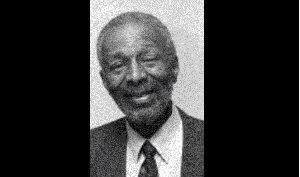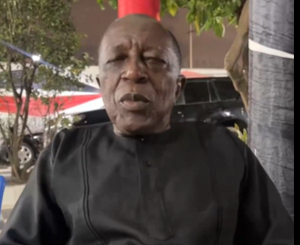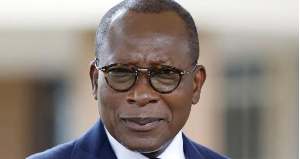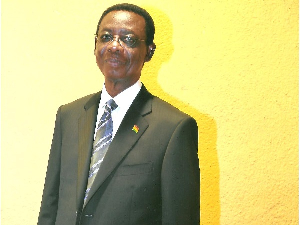Calls for the resignation of Attorney-General Godfred Yeboah Dame continue to mount in the face of his alleged involvement in irregular out-of-court negotiations with an accused person.
Dame has since last week remained mute over allegations from the accused, Richard Jakpa, that the A-G had impressed on him to give evidence that would implicate his fellow accused person in a high-profile financial crime trial.
The targetted accused person is Cassiel Ato Forson, the Minority Leader in Parliament and former Deputy Finance Minister.
One of the loudest voices in calls for Dame to step down is Kwaku Ansa-Asare, a former director of the Ghana School of Law.
According to him, Dame should shoulder a moral responsibility and leave office because he would not be the first to step down as Attorney-General over a scandal.
Ansa-Asare, speaking on Joy FM's Newsnight programme (May 28) recounted an incident in the 70s that led to the resignation of an A-G.
Austin Ammissah, the 9th A-G in Ghana's history, having misconducted himself in a plea bargain negotiation involving a murder case, stepped down.
Ansa-Asare narrated: "Dr. Ohene Gyan had been accused of participating in the murder of one of his security officials, in the course of the trial, when the issue of plea bargain came up."
Plea bargaining, he explained, "is simply an informal procedure usually conducted in the chambers of the Attorney-General or the chambers of the trial judge whereby the accused person could agree to plead guilty as an exchange for the prosecution to drop the case against him."
He said in the case of Ohene Gyan, it was alleged that when the case was ongoing, Ohene Gyan contacted Gyeke Darko, the top prosecutor and the judge that he would rather plead guilty in exchange for dropping the case against him instead of a full-scale trial.
"Austin Amissah, who was not only the A-G but Dean of the Faculty of Law of the University of Ghana misconducted himself and was made to resign," he stressed without going into the details.
"This was during the era of the National Redemption Council under General Kutu Acheampong," he added.
"History has repeated itself, Dame is an A-G, he knows what the process of plea bargaining involves," he submitted stressing that President Nana Addo Dankwa Akufo-Addo will likely refer the matter to the Special Prosecutor, who is likely to clear Dame of any wrongdoing.
Amissah, Ghana's 9th A-G was born in Accra, on 3 October 1930. He studied at Jesus College, Oxford and was called to the bar as a member of Lincoln's Inn in 1955.
He was Director of Public Prosecutions for Ghana from 1962 to 1966, then became a judge of the Court of Appeal from 1966 to 1976; he was seconded from this position to become a professor and Dean of the Law Faculty at the University of Ghana from 1969 to 1974 and chairman of the Ghana Law Reform Commission from 1969 to 1975.
He was appointed Attorney General and Minister of Justice in 1979, and later became a judge of the Court of Appeal in Botswana from 1981 to 2001, including a period as President of the Court of Appeal.
His writings included Criminal Procedure in Ghana (1982, winner of the Noma Award), The Contribution of Courts to Government: a West African view (1981) and Arbitration in Africa (1996). He died in London, where he had lived since 1982, on 20 January 2001.
SARA
General News of Thursday, 30 May 2024
Source: www.ghanaweb.com













